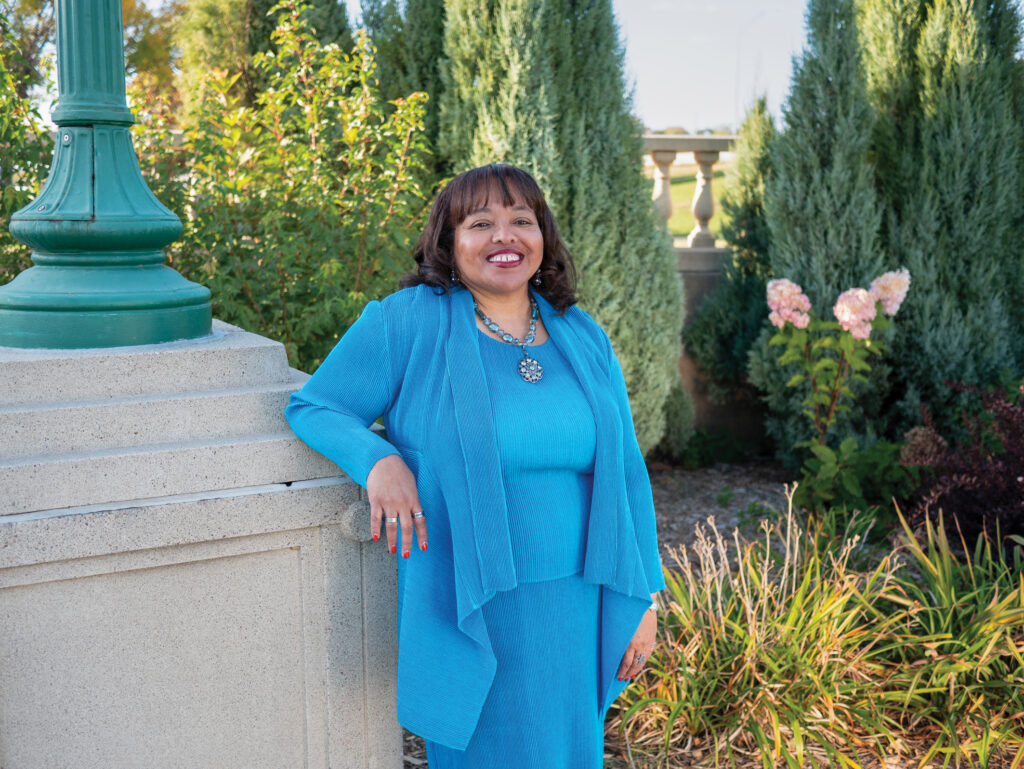
As told to Nicole Grundmeier
Monique Scarlett founded Unity in the Community in Sioux City after the slaying of 17-year-old Trayvon Martin in Florida in 2012. Scarlett has a son, Xavier, and she wanted to do whatever she could to keep him – and everyone – in the community safe. Unity in the Community has a close, ongoing relationship with the Sioux City Police Department and other law enforcement. Scarlett’s cellphone never stops ringing. Despite considerable challenges, the relationship between communities of color and the police in Sioux City has been mostly peaceful. After the murder of George Floyd in 2020, Sioux City police handed out cold water to protesters. The conversations never stopped. Scarlett’s goal is to make Sioux City a welcoming, safe and empowering community for everyone – and her dreams aren’t small. She said that Unity in the Community could be a model for nationwide programs. In September, Scarlett was one of several partners who came together to host Deaf Awareness Night at a football game. The play-by-play of the big Sioux City North versus Sioux City East game was signed by an ASL interpreter. Scarlett was born in Sioux City and grew up there in the late 1960s and 1970s, although her family lived in California for part of her youth. Scarlett is a survivor of domestic violence. She is a devout Christian and a school board member. Scarlett, 56, works full time at U.S. Bank in addition to leading Unity in the Community, which is a nonprofit.
The following story has been formatted to be entirely in her words, and has been edited and condensed for clarity.
Growing up, I remember we couldn’t go into certain places, certain stores. Especially downtown, if you went into a store, you were followed the entire time you were there. Then finally if you had not purchased anything … of course, as kids, we had this “wish list,” we always called it. When we’d go into stores like Sears, which was here and it was very large, and you already got that big Sears catalog, you thought that you’d go to the store and look. You didn’t have the money, but you were wishing. Then, pretty soon, you’d spend so much time, and they would tell you, “You have to leave. Get out of here. You don’t have any money, get out of here.”
This was before Cook Park was developed. Minority kids couldn’t swim at just any swimming pool in Sioux City. So we had to walk, as kids, from Isabella Street on the west side of Sioux City to Riverside and swim at Riverside Park and the pool there. We would walk in the summer – we had our old towels rolled up because we couldn’t use theirs. I remember the N-word being used quite a bit. My mother was furious a lot. She’d get into it with different people. The N-word was loosely used.
——————
It was fourth grade. My teacher would mispronounce my name all the time. She was saying “Mon-nick” or “Mon-nick-Q.” I would always say, “My name is Monique. My mom named me Monique. My name is Monique.” And well, “I’m gonna call you Mike” or “I’m gonna call you Mon-nick-Q. That’s what I’m gonna call you.”
I remember kids in that classroom would call me names and call me the N-word. She wouldn’t do anything about it, for some reason, and she was a sharp teacher. I learned a lot in the classroom as far as book knowledge and things like that, but boy, she didn’t stick up for me. When I think back now, well, maybe she was under a lot of pressure. If the teacher would have stood up, maybe she would have faced the bullies at that point or whatever.
But I just remember feeling so alone and being the only Black kid in the class and being teased and had to just go through it. My mom would always say, “You’re tougher than that.”
That was probably the same year the TV series “Roots” by Alex Haley came out. I remember one Monday going to school and a girl on the playground decided to call me the N-word and said, “That’s, you know, what you are, that’s what my mom and dad said.” And that was it for me. I just remember doubling up my fist, and boy, I socked her good. I just socked her good.
Back in those days, your principal could paddle you, and then you got disciplined at home as well. I was raised old-school and I just thought, “Man, I’m gonna go home and I’m gonna get the whupping of my life.” But my mother didn’t. She did not whup me. She sat me down and she explained to me, “You’re gonna get called all kinds of names in your life, but you have to be the bigger person. You have to understand.” First of all, she said, “Never, ever be conceited. But always be confident in who you are.” That stuck with me.
To this day, when I make decisions or I have to stand up to bullies, as I’ve done recently, in the board that I serve on, I always have to remember that I’m confident in who I am. You’re not gonna bully me. You’re not going to do this. So growing up in Sioux City was tough. It was. I love Sioux City, though. I love my city. I try to do the right things for my city for the generations to come. I always encourage young people, regardless of who you are, where you come from, whether you’re poor, rich, Black, white, Native, Hispanic, it does not matter. Gay, straight, it doesn’t matter. Believe in yourself and chase your dreams, and your dreams become reality because you make them real.
——————
When I came back as a teenager, I watched the NAACP chapter and Native community just roar. And the officers just roared right back. It was just like, OK, nobody’s coming together. Why are we not coming together?
So before I did Unity in the Community in 2016, and that was as a result of Trayvon Martin’s death, that’s how I said, something’s got to change. Because I have a son that this could be happening to. And I have cousins. So I went to the chief of police. I think I shocked him, because he said, “No one has come to me the way you’re coming to me.” I said, “Look, we’ve got to sit down at the table. We got to talk this through.”
I went to former Sioux City Manager Paul Eckert. I talked with him. I talked with Karen Mackey, who was the city of Sioux City human rights director; she still is. I talked with her and I talked with Councilwoman Rhonda Capron. They were all like, “Yeah, let’s do this.” That day, I said, this is what I want to do. I said, “Let’s talk this through. We need to have a relationship instead of this division. We got to come together, we got to find common ground. Common ground right now is saving lives. Saving your life as officers, saving our lives as citizens.”
They all agreed. I said, “I want to start out with a peace march.” So in 2016, we put the word out. It was just word of mouth.
At that time, it was just me, myself, and a guy named Cliff Coleman. He’s from Dallas, Texas, in a very rough area. He didn’t like officers, but he trusted me enough to say, “OK, Mo, let’s sit down and see where this goes.” To hear his testimony and to watch the first time he broke down in a meeting. He said, “I did not like police. I hated police.” He broke down and he said, “But you know what? I can honestly say now, ‘I love you, man.’” And he pointed to Rex [Mueller], who’s our current chief of police. He said, “I love you, man. I love you.” It was just like, wow. So I watched his transformation.
Once we did that peace march, it was community coming together, a diverse community: officers, people from the sheriff’s office, Back the Blue, all of it. We all came together. We marched around the block, around the police station, and then at the end, we all held hands. We prayed together as people.
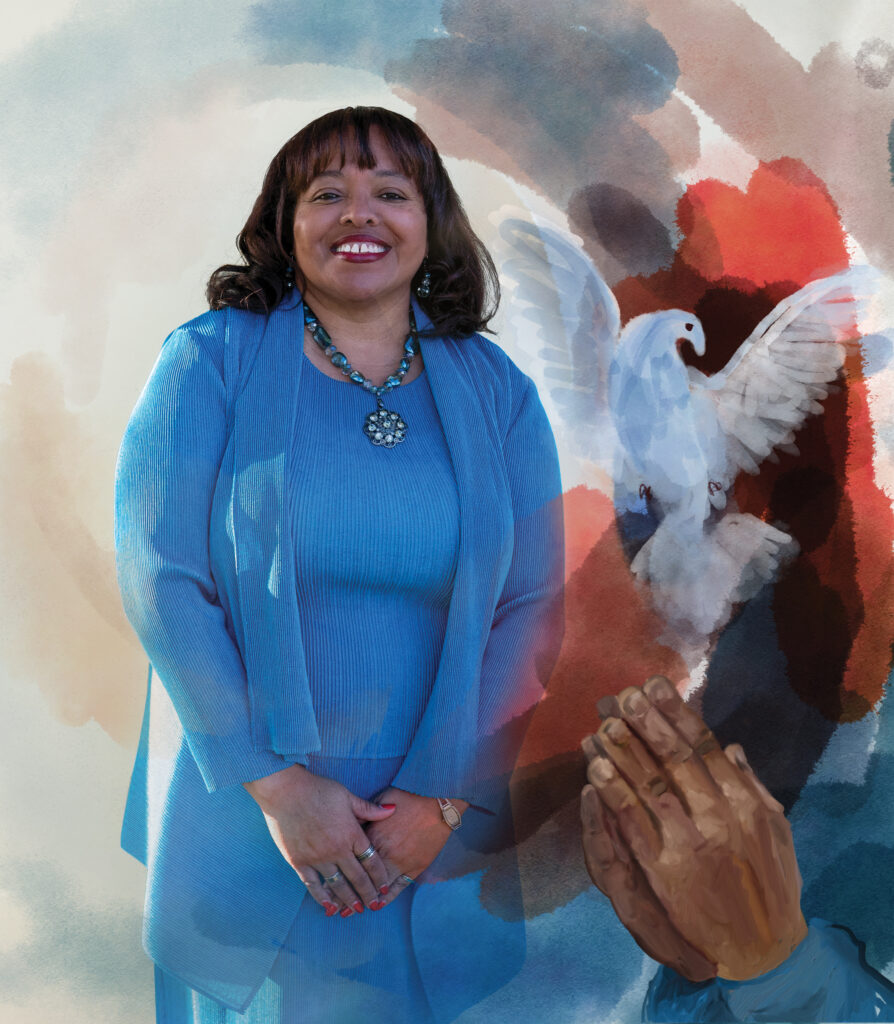
So the organization Unity in the Community, that’s what came out. It was birthed in 2016. We’ve been working programs from educational forums to the first time we held the annual block party. That was Cliff’s idea. He said, “Hey, Mo, let’s do something out of the box.” I said, “What do you got in mind?” “Let’s hold a block party, but let’s do it in the neighborhood of the people.”
We started reaching out to people, and people were like, “Yeah, we’ll donate. We’ll do this.” The first block party, we had a little over 500 people.
We gave bikes away. We watched kids, we watched police officers, sit and laugh with the community. That had never been done before in Sioux City. I heard that from the police officers to the sheriff’s department to the city council. They said, “You’re making history.” I wasn’t making history. We are making history as a community.
So then after that, that’s when we said, “OK, this is fun to have the block party, but now we have to educate our people.” We have to educate officers to understand why we do what we do. They have to tell us why they do what they do.
That’s when we started doing the fall educational forums. “Handling the hurt” was a topic one year. “Who’s responsible?” was a topic one year. Mental health was a topic. Yeah, it was like, we’re hurting, but officers are hurting. They didn’t get up that morning and say, “I’m gonna go kill somebody today.” That’s when the community started looking at – “Oh, wow.” You should have seen lights going off in these educational forums.
So those are extremely important. That’s why we continue to do those, because you get to hear both sides. We get to talk through things that are affecting our community. Or things that we think are going to try to infiltrate in our community, and we have to be proactive. We can’t react. We have to be proactive and say, “We already have something in place.”
When things happen in Sioux City, my phone rings at 1 or 2 in the morning: “We have a situation, Monique.”
When all that was going on – George Floyd – I went down and I was a little worried. I was. Because people’s emotions was everywhere. Mine was everywhere. I went down there and walked around for a minute.
There was a group of young men, and they were mad and they were just cussing, and saying “Defund the police. We hate the police. ‘F’ the police,” all this stuff. I said, “Hey, guys, can I just talk to you for a minute?”
“Who are you?”
I said, “Hey, I just want to talk to you. That’s it. I just want to share some wisdom nuggets with you.”
“OK.”
So I went over there. They were right in front of the police station. I just began to talk to them. I said, “Tell me a little bit about why you’re angry.” So they began to express why they’re angry.
You have every right to be as angry as you are. All that energy you feel right now, I said, now what I want you to do – take all that energy and figure out a way how you can change this from happening, in a positive way.
I left there about 3 that morning. By the time I left, we had some young folks with a different mindset. Then I marched with them. They didn’t expect me to do that. It’s like, “Yeah, yeah, I’m hurting like you’re hurting. But I’m here for you. We just got to find a way to take all this energy and channel it in a better way.”
The police officers were out there handing out water, because it was hot. These young people couldn’t believe that. ’Cause in their mind, these are the enemies. Nope. Not the enemy.
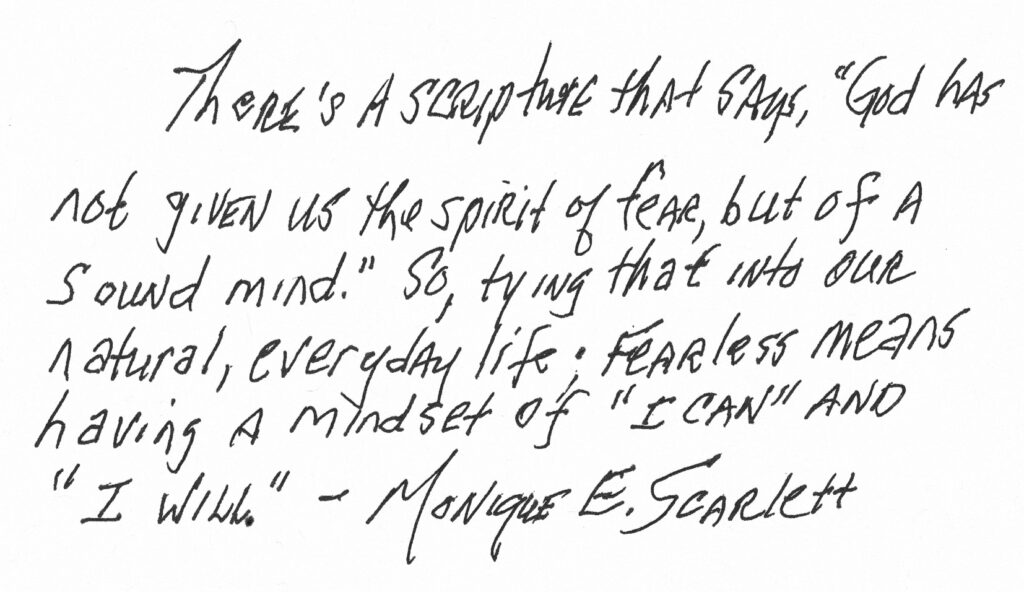
——————
We want, somehow, to be invited to the White House. That’s what we say. Rex Mueller and I say we’re gonna get on that plane, smiling, and we’re gonna go in and say, “We have the blueprint for our nation, if people would just listen.” We hear, but are we really listening? We have the blueprint. We have the educational forums. We have the block parties. We have the roundtable discussions. We have the open doors. We have that willingness – you can call me at 1 o’clock in the morning, we can talk about this thing. We have people strategically placed and board members in strategic areas in the city, that they are talking about Unity in the Community.
Here’s the flip side of this organization. I have got, “Oh, you’re a sellout. You’re a sellout.” I went through that, and it was tough emotionally because you want your family and your friends to believe. No, I’m fighting for us. But I’m doing it in a different way, where we can just come together and not be so angry at one another anymore. I went through that emotionally and mentally, and that was hard. Some understood and some still don’t. That’s OK, because at the end of the day, the common ground is unity.

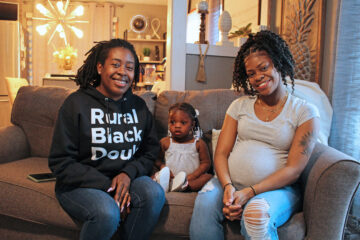
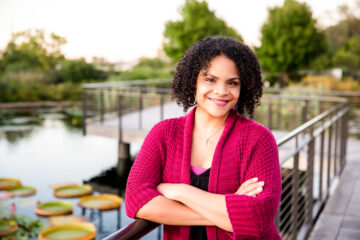
1 Comment
Eric sudduth · October 28, 2023 at 2:31 am
Good job , all of them keep up the good work 👏
Comments are closed.